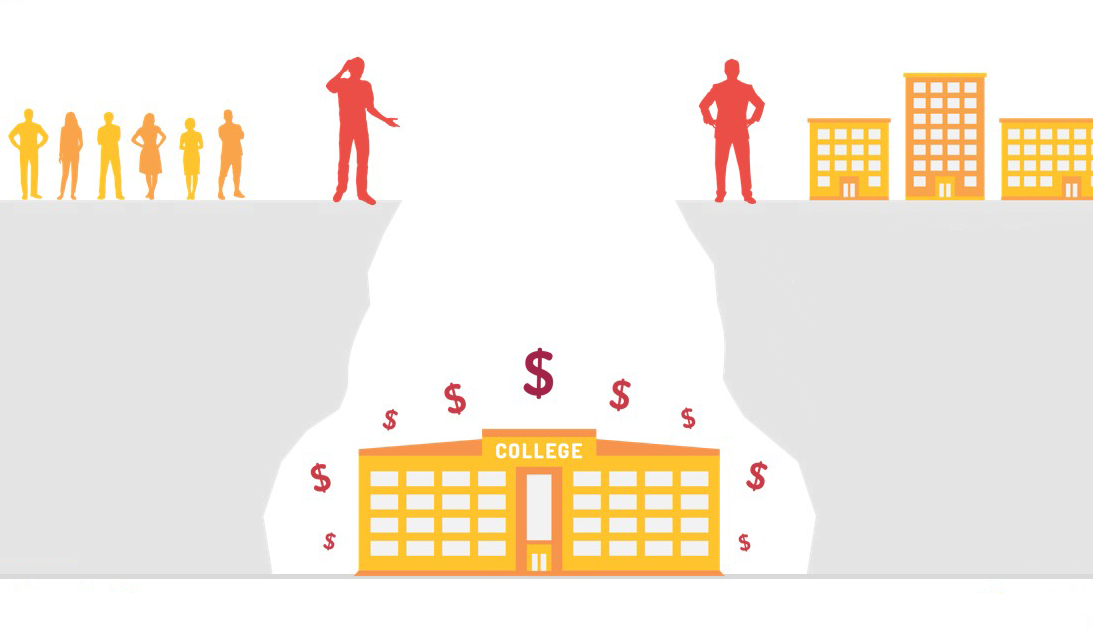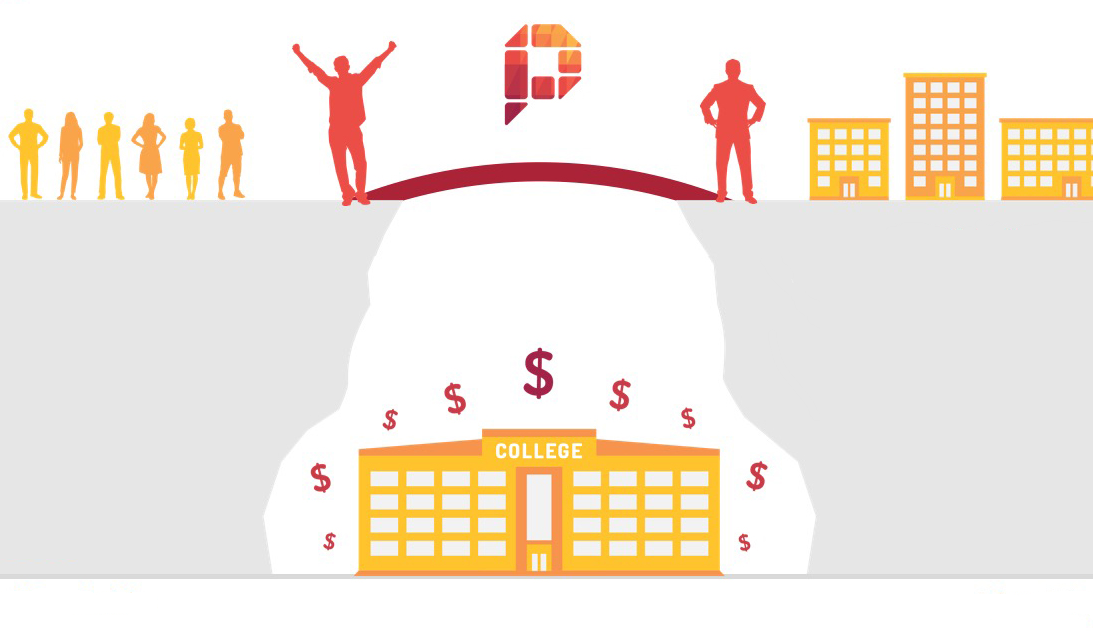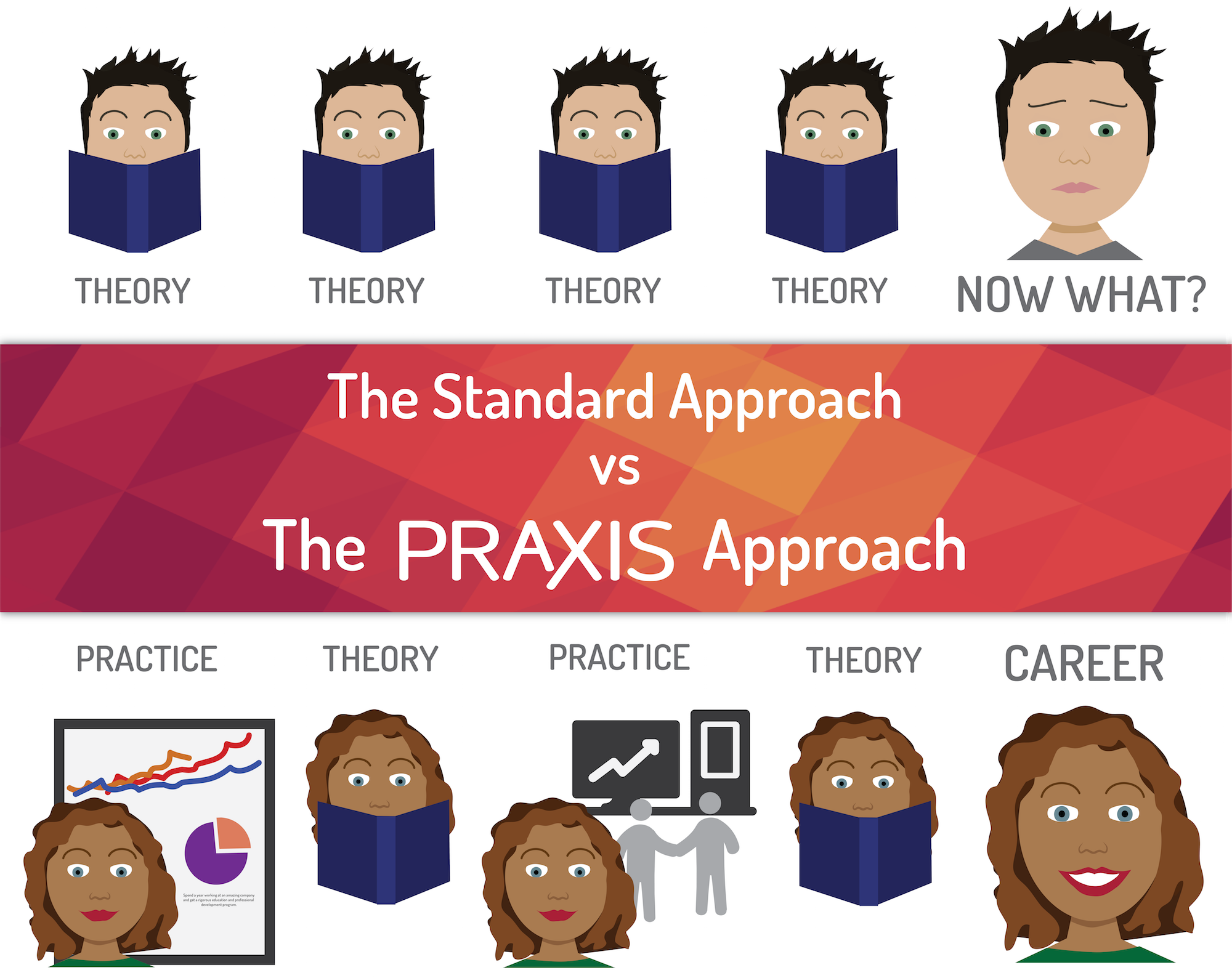I’ve met a lot of bright young people planning on law school or in law school.
I’ve also met a lot of unhappy lawyers.
I suspect lots of these young people will end up unhappy lawyers too, and I’ve got a theory as to why.
Lawyers are often “successful” in terms of external indicators and cultural prestige. They tend to make good money and are held in esteem (lawyer jokes notwithstanding). And, of course, lawyering is a perfect fit for some people. I know some very happy lawyers.
But it seems a large percentage of the profession consists of unhappy people. People who don’t particularly enjoy doing divorce or merger and acquisition paperwork. Many who wish they could escape.
How did they end up there in the first place?
Because the educational conveyor belt doesn’t know what else to do with truth-seekers.
Everyone is motivated by a lot of things. But most of us have one core value that, when push comes to shove, trumps the rest. For some it may be freedom, for others security, adventure, or in the case of many an unhappy lawyer, truth.
Those whose dominant core value is truth are rather relentless. They’re smart. They like to argue, and they tend to argue well. They want to get to the bottom of things. They want to find the right answers. They want correct facts and knowledge of right and wrong. They are willing to examine and explore multiple sides of issues and ideas in the process.
Similar to those whose highest value is independence, they’re comfortable questioning authority. But the freedom-seekers tend to be more willing to disobey or ignore the rewards and punishments of the education system. They might rebel against assignments or good grades. Truth-seekers on the other hand, though happy to question the status quo, are typically comfortable following basic rules and getting good grades as well. They see winning at the grade system as a way of finding whatever truth is to be found there.
Herein lies the problem, and the beginning of their disproportionate and often unfortunate pursuit of careers in law. The school system doesn’t know what else to do with them.
There are few ways to channel their truth-seeking desires in school. There’s little in the way of philosophy, history doesn’t do as much debating as fact-spitting, and even the sciences pre-graduate level don’t really spend time questioning anything fundamental.
What’s left? Debate and forensics. Truth-seekers do well here. They love it. Most high school debaters will tell you it was the absolute highlight of their educational experience. They finally got to question everything, look at all sides of issues, argue without being offensive or reprimanded. And they got to “win”.
Parents and teachers of young truth-seekers are so conditioned with the conveyor belt mindset that they struggle to see beyond an easily identifiable handful of job titles. The work/identity trap is also strong, so whatever junior likes must immediately be mapped onto a business card. A focus on external indicators of success furthers the tendency. The common refrain for young debaters is, “You’re always arguing. You should be a lawyer!” What other possible avenues for all this truth-seeking could there be?
“I get to search for the truth? I get to debate it? I get to make everyone proud of a prestigious career? I get to make good money? Yeah, I guess I do need to go to law school!”
So lots of them do.
And lots of them end up wishing they hadn’t. They find out too late that most lawyer jobs have little to do with truth-seeking. The law itself isn’t primarily about truth, and most law jobs are even less so. They’re about navigating bureaucracy and nearly impenetrable wordplay to help people do very simple tasks like buy and sell things, move money, end or begin professional or personal relationships, or draft up “just in case” language. It’s a fundamentally conservative endeavor, concerned with protection from liability more than the caution-to-the-wind pursuit of truth that landed them there.
Law requires attention to detail, a high degree of literacy, and plenty of patience and problem solving. Those things are perfect for some people. But those whose core value is truth aren’t often among them.
Because their desire for truth was so quickly tracked and careerified, they never had the chance to explore. Law school is particularly problematic then, because of its astronomical price tag. Upon completion, more doors have been closed than opened. There are only so many jobs that pay enough to service the debt. And by now they’re closer to marriage, kids, and other financial obligations that make lower starting pay gigs tougher. After law school, they kind of feel like they have to be a lawyer, even if it doesn’t scratch the itch for truth.
A decade later and the debt burden might be gone, but the golden handcuffs replace it. Quality of life seems locked in. Mortgages, cars, schools, and prestige can’t easily be downgraded, even if they are unhappy most of the day most days. It’s lifestyle slavery, and it kind of sucks.
Where else might these truth-seekers have gone with their passion? Perhaps philosophy. Not just in the academic sense, which often comes with its own bureaucracy and BS, but more generally. It’s true, you can be a philosopher and a lawyer or a philosopher and a great many other things. Your source of income and who you are need not be the same. Seeking, writing, researching, fact-finding, and questioning are such general and generally valuable traits that a true philosopher can apply them in myriad careers. But law is a career that makes being defined by anything else particularly hard.
How many authors, podcasters, coaches, mentors, counselors, investigative reporters, or entrepreneurs are at bottom truth-seekers? Truth as a core value is applicable in a great many areas. Most of all, someone with the freedom to follow their passion for truth is likely to discover or create a career we can’t even yet imagine. Sadly, the school conveyor belt tends to corral more than its fair share into law.
So here’s the takeaway: Stop telling good arguers to become lawyers.
Let them explore the world fully and freely. Let them try a lot of stuff. Let them follow their questions. If after real exposure to the day to day reality a career in law appeals to them, great. They’ll choose law school. But don’t obsess about placing them on a list of predefined career categories and channeling their core values into it before they know what’s what.
I’m a parent. I get it. We worry how our kids will feed themselves and build a life. If they love something, our mind immediately tries to formalize and monetize it. My son loves video games and comics and superheroes, and more than once I’ve begun formulating ways to turn this interest into a career as a video game designer or illustrator and set him on that path now.
Fight that urge. Open the world up to them, not just the few aspects of it that come with a title and salary today. But everything that it is and could be tomorrow.
This leads to another good question…what are some other career tracks that young people with other core values get placed on too early?…
Like this:
Like Loading...



